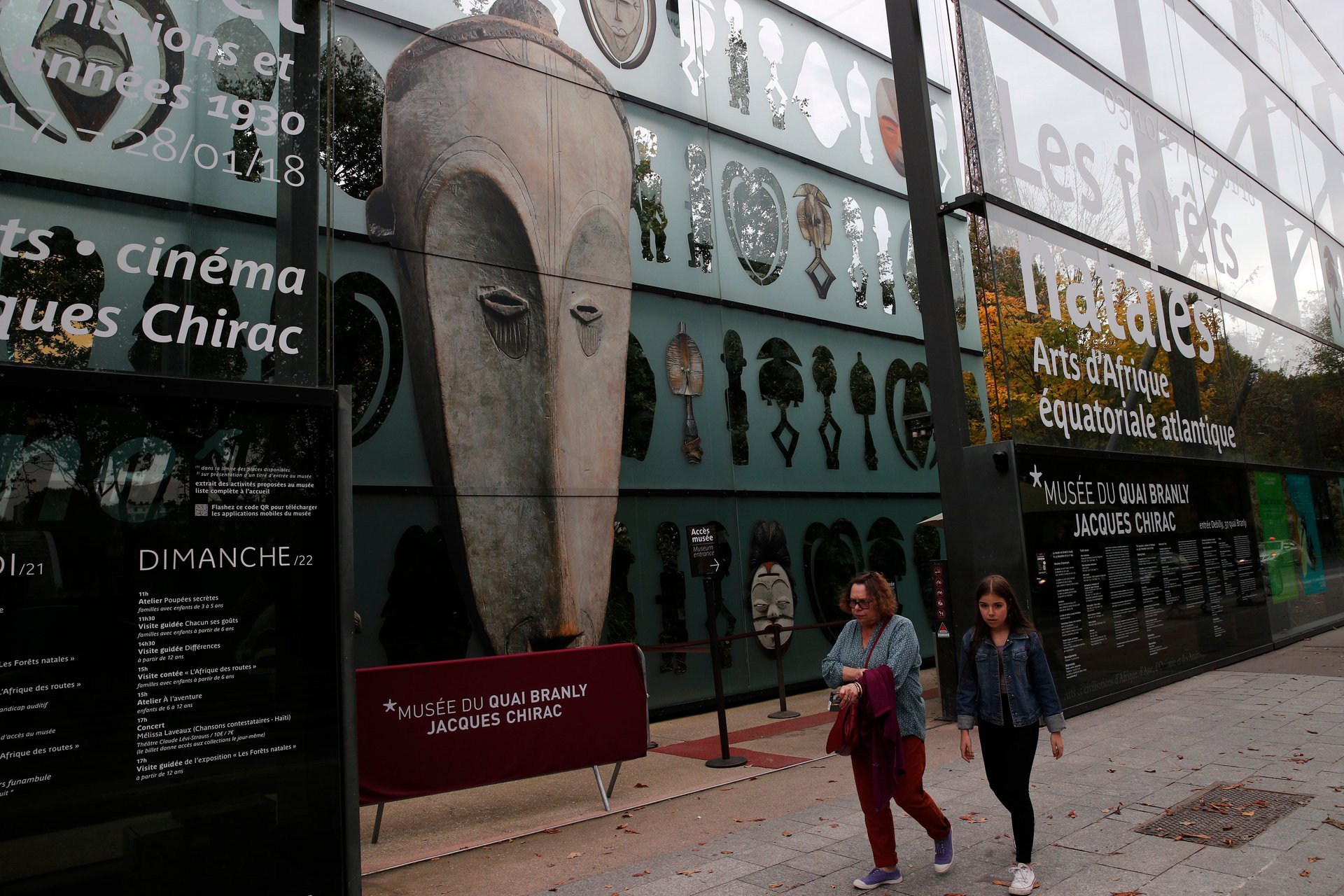France will have to change its laws to return its looted African art
France is set to make good on president Emmanuel Macron’s promise to return Africa’s stolen art and artifacts.


France is set to make good on president Emmanuel Macron’s promise to return Africa’s stolen art and artifacts.
This week, a report will be released that outlines exactly why and how thousands of priceless objects should be returned to Africa. An early look at the report, due on Friday (Nov. 23), calls for a change in French law that would allow restitution through bilateral agreements between France and the affected African states.
Until now, French law refuses to cede property owned by the government, even if that property was acquired through looting. The authors of the report (link in French), Senegalese writer Felwine Sarr and French art historian Benedicte Savoy, called for a change to these “heritage laws” so that the “the criteria of consent can be invoked” on a case-by-case basis.
There are about 90,000 African artworks in French museums, most of them housed in the Quai Branly museum, an ethnographic museum that also boasts a large collection of Asian art. It was created by former president Jacques Chirac, an avid collector of African and Asian art.
There has been a growing call from a new generation of African leaders, historians and art collectors for the repatriation of Africa’s artistic and cultural heritage. The most significant perhaps came from Benin’s president Patrice Talon, who directly asked Macron to return the treasures of the Kingdom of Dahomey, which was invaded by French troops at the end of the 19th century. This report is the result of a call made by Macron about a year ago during a visit to Burkina Faso.
“African heritage can’t just be in European private collections and museums,” he said during a speech at the University of Ouagadougou. The politically astute sentiment appealed to Africa’s young population, who are increasingly being wooed by others international powers like China and Russia.
While many, particularly in Africa, have welcomed the report, European art dealers are more skeptical. Some say repatriation could leave France’s museums nearly empty and question just who the art should be returned to since many of these kingdoms no longer exist. Others fear collectors may even start moving the art out of France, fearing state seizure. Simon Njami, the editor of the Paris-based art journal Revue Noire, cynically called the move “a foolish promise” that would never materialize beyond rhetoric.
Still, France’s newfound motivation to restore looted artifacts may shame other European states into doing the same. Approximately 180,000 African artworks are held in Belgium’s Royal Museum for Central Africa, while 37,000 objects are in Austria’s Weltmuseum, according to AFP. The British Museum is also in talks to return the ancient Benin Kingdom’s bronze statues to Nigeria.
Sign up to the Quartz Africa Weekly Brief here for news and analysis on African business, tech and innovation in your inbox